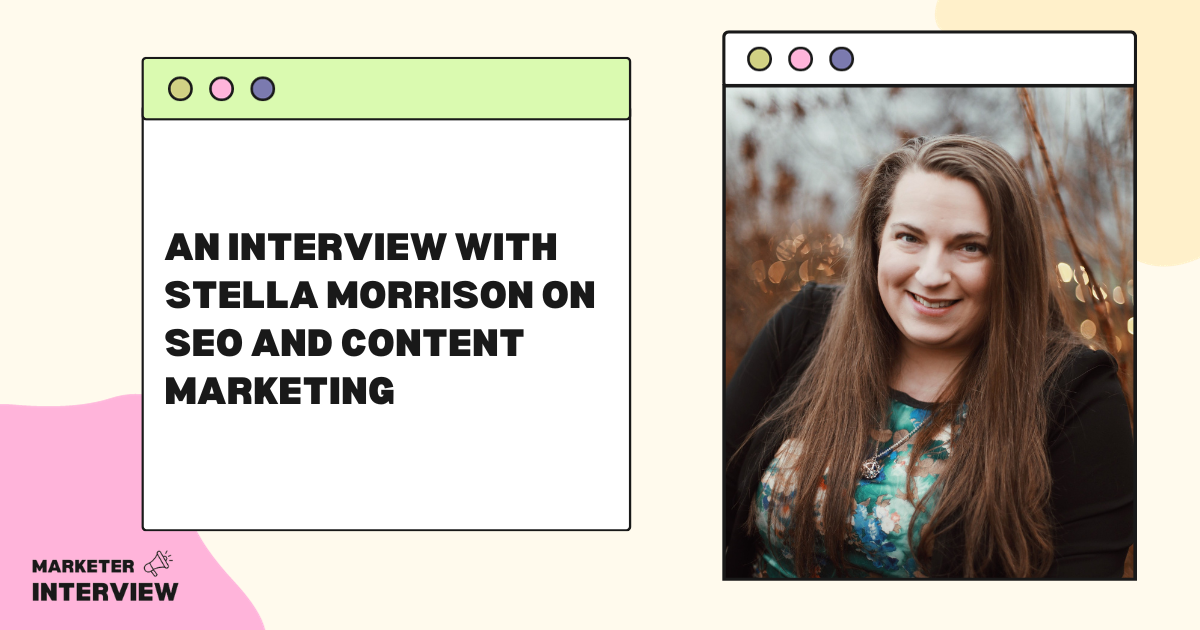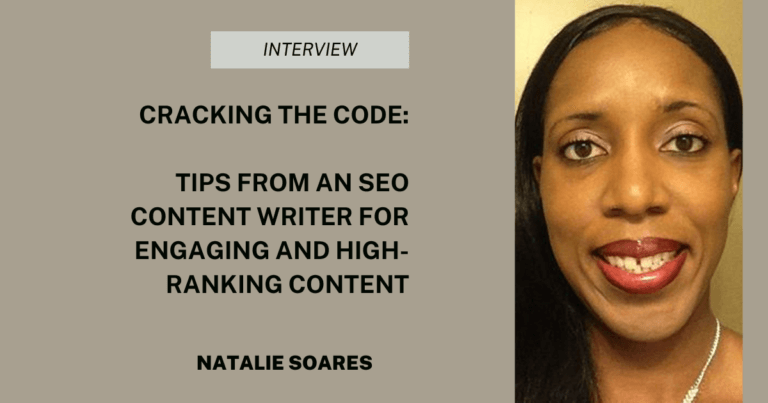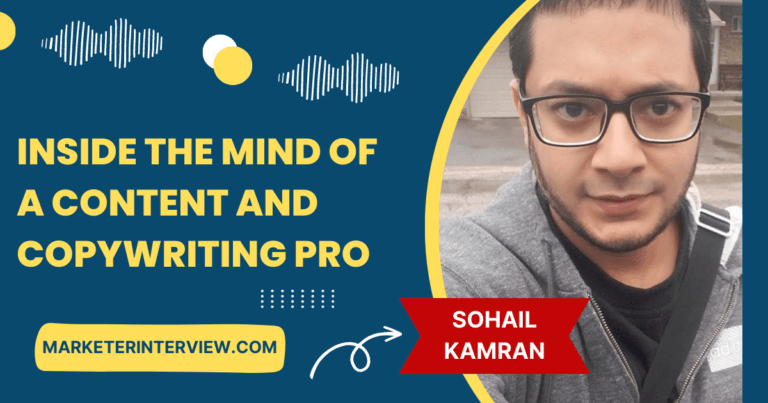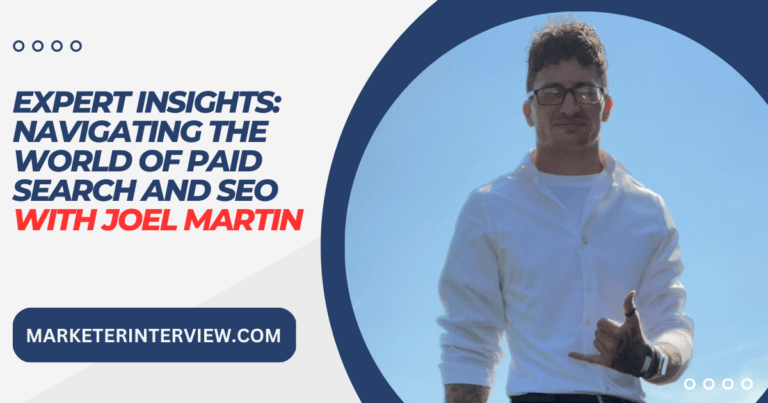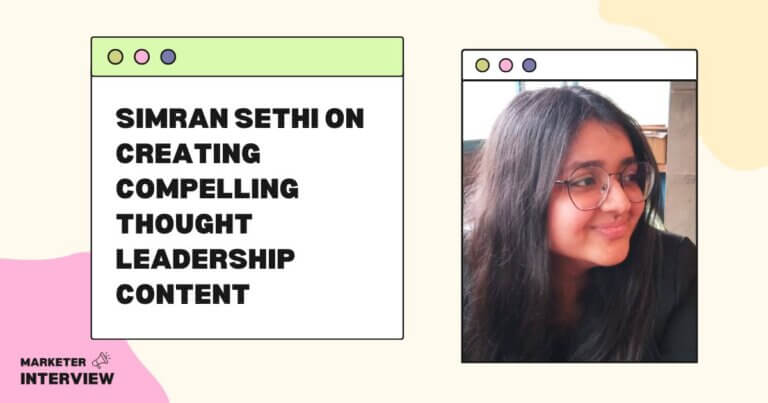An Interview with Stella Morrison on SEO and Content Marketing
Welcome to another exciting edition of Marketer Interview, where we delve into the minds of marketing innovators and thought leaders.
Today, we are privileged to have the accomplished Stella Morrison as our guest. Stella is a seasoned marketer with a wealth of experience in content marketing and SEO and a unique perspective on the challenges and opportunities in cannabis marketing.
Contents
- 1 Can you share your journey into the marketing world and how you became passionate about it?
- 2 As an award-winning former journalist, how has your journalism background influenced your content creation strategies in marketing?
- 3 Tell us more about The Stellastra Effect. What makes it unique in the marketing landscape?
- 4 You also founded CannaContent, which specializes in cannabis marketing. What opportunities and challenges do you see in this rapidly evolving field?
- 5 Your profile mentions “developing editorially sound and educational content.” Can you elaborate on the role of educational content in modern marketing?
- 6 How do you approach brand voice development, and why is it vital for a brand’s success in content marketing?
- 7 Please share some insights into your techniques for content writing for SEO that can benefit our readers.
- 8 How do you ensure that your content stands out and adds value to your client’s businesses in a world filled with content?
- 9 What essential tools and software do you rely on for your work in The Stellastra Effect and CannaContent?
- 10 How do you navigate the ever-changing landscape of SEO algorithms and stay ahead?
- 11 Finally, you offer services like thought leadership development and ghostwriting. What’s the key to successfully representing diverse voices and perspectives?
I started my career in journalism, first as a radio journalist and then in print journalism. In those roles, I learned, practiced, and perfected many of the skills that I use every day, including fact-finding, interviewing, bridge-building, and storytelling. I earned my first two awards for community reporting work in those settings.
I loved what I did, but maintaining a journalism career wasn’t financially feasible. I took a job in the licensing and brand management industry. I spent a few years working on brand identity, brand voice creation, product line-building and compliance, and licensing opportunity development in the consumer electronics, lighting, and home industries. I was good at what I did but endured very long and stressful days for little pay in what I can best describe as a dysfunctional environment.
That experience only reaffirmed that writing was my one true love, not in a romantic way, but in a practical, natural way. I wasn’t entirely sure how to make my way back, though. I wasn’t going back to journalism just to face more newsroom cutbacks, and I wasn’t thrilled about working for other people. Content marketing felt right: I could get paid to write without all the responsibilities and struggles a reporter had to handle.
At the time, it was predicted that most writing jobs would be outsourced by 2020. I also saw the issues that relying on a single freelance writer posed on businesses that needed copy quickly.
My answer to these challenges was something in the middle. I developed a small boutique firm that could fill the role of a freelance writer with all the advantages of an agency. Through this format, our agency could handle fast turnaround, develop a robust infrastructure for content review and fact-checking, and scale when our clients needed us to do so. So, in 2015, I took the leap of faith and opened The Stellastra Effect, which went by a different name back then.
The rest is history!
As an award-winning former journalist, how has your journalism background influenced your content creation strategies in marketing?
My journalism background is at the heart of everything I do! The critical thinking skills you learn as a journalist are essential for quality content, whether reporting from the White House or creating a toy-buying guide for the holidays. This training helps you close logic gaps in your writing and ask questions that enhance the final piece of content.
For busy marketing managers, the content they receive from us is ready to publish in minutes, with no rewrites or overhauls necessary. For readers, this means they’re reading something quality that will enhance their lives or make them more manageable.
Tell us more about The Stellastra Effect. What makes it unique in the marketing landscape?
The Stellastra Effect opened in 2015 under a different name. From the beginning, I set out to make quality our differentiating factor. There is no shortage of available writers, but there’s a shortage of good writers. And unfortunately for marketing and PR professionals who need a copy, they may not realize quality is an issue with their projects until it’s too late.
I set out to ensure that clients would never have that problem with us by thoroughly vetting, evaluating, testing, and training all writers who came on board. Only the best of the best make it through our screening processes, guided by my 15-plus years of professional, successful writing experience.
In recent years, The Stellastra Effect found a steady niche in working directly with marketing agencies, particularly SEO agencies, to produce quality content for their clients. These agencies found that a reliable content writing firm that fully understood SEO best practices simplified their workflow and resulted in happy clients. Those partnerships have been some of our most fruitful and fulfilling to date, with some of these accounts even winning awards for their quality and the content strategy behind the project.
You also founded CannaContent, which specializes in cannabis marketing. What opportunities and challenges do you see in this rapidly evolving field?
Cannabis marketing faces restrictions and limitations in several ways, from social media platforms disallowing content to state regulations dictating how certain subjects can be discussed. But one thing that all cannabis companies can benefit from is SEO.
You can have your website, produce compliant content according to SEO best practices, and engage in the same standard on-site and off-site activities that strengthen websites. The alternative directories have become cost-prohibitive for many companies.
And in a space where so many platforms are hostile to cannabis, you can lose your Instagram account and followers immediately. However, your website is wholly yours forever. It’s an intelligent strategy to own your traffic in this volatile environment, making SEO and content marketing an essential service.
Your profile mentions “developing editorially sound and educational content.” Can you elaborate on the role of educational content in modern marketing?
The most successful pieces of content are helpful to the reader. This can take several forms: a how-to guide, a 101-level primer, or a product review. Whichever form the content takes, the fact is that readers won’t stick around your blog or click around your site if they don’t like the content in front of them in the first place.
Another aspect here is trust. There’s certainly no shortage of educational content on the internet, but can that information be relied upon? This is where the content source makes a difference. Sound educational content enforces your brand or company as a leader in the field and a trustworthy source of information on a topic. That’s good for SEO, but it’s also crucial for winning over customers.
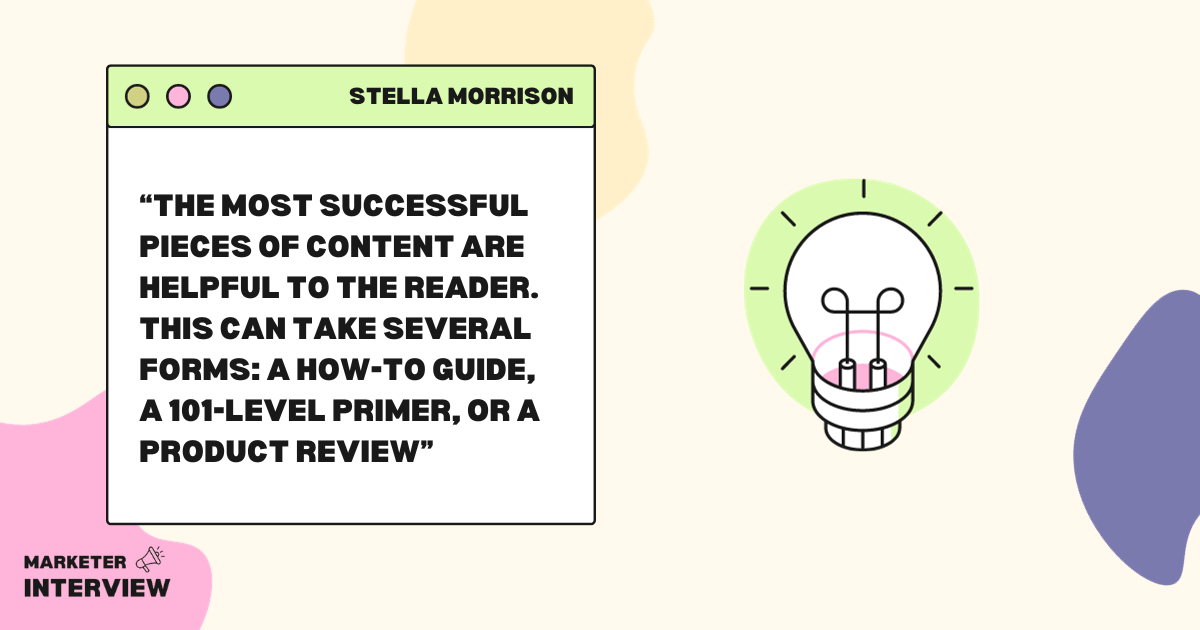
How do you approach brand voice development, and why is it vital for a brand’s success in content marketing?
People make emotional connections to brands, whether they realize it or not. Brand voice helps shape and develop this relationship by subtly communicating how you want people to perceive your company, whether you want to appear as an authority figure, a friendly neighbor, or a wise mentor. Everything from word choice to sentence structure shares those values, using the space between the lines to reinforce what you want your potential customers to know about you.
Put the reader’s needs first, always. No matter what changes in SEO, the need for content quality remains constant. And the key to content quality is producing something that meets the reader’s needs. Stay focused on creating valuable and helpful content.
On that note, don’t sweat if you don’t see all the “green lights” in Yoast light up. All SEO tools are guides, not the be-all, end-all of your strategy implementation. Stay focused on producing good content that gives the reader the necessary information, and you’ve made a big step in the right direction.
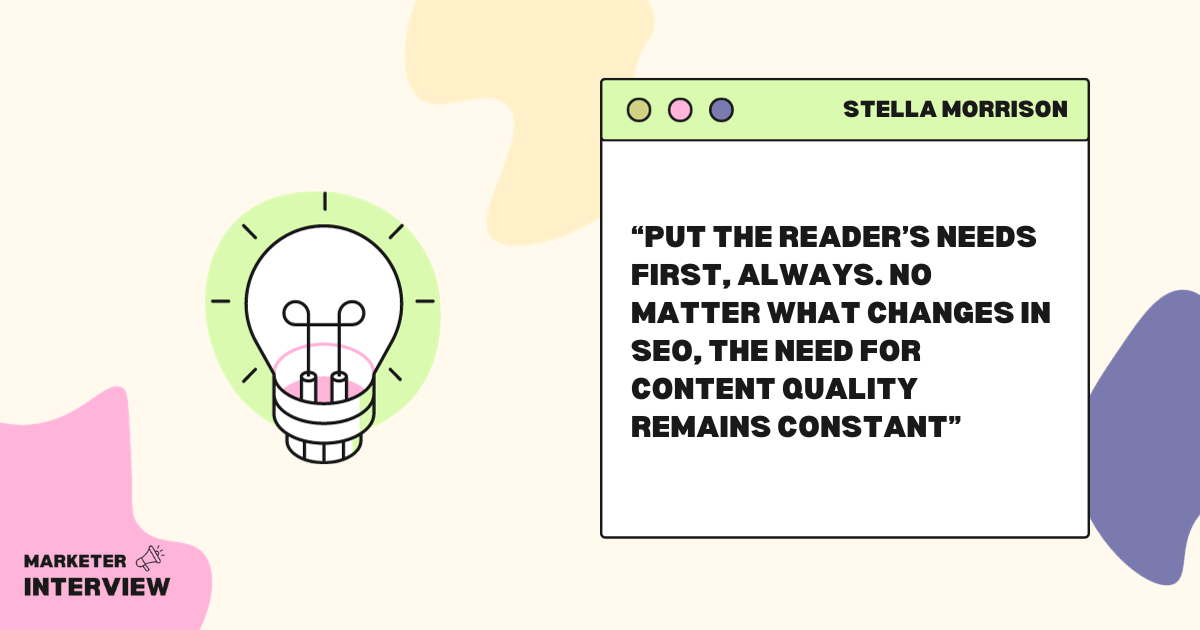
How do you ensure that your content stands out and adds value to your client’s businesses in a world filled with content?
Every business has a unique take you can and should build upon. This can take many forms. Maybe your company owns the patent on the product you’re selling, or the CEO is known for their unique approach while competitors copy one another. Finding that nugget is essential to content marketing success, and indeed all marketing success.
Businesses that don’t cultivate that differentiating point or points early on struggle long-term. The good news? Content marketers like me are trained to help you identify and develop that unique point of view.
What essential tools and software do you rely on for your work in The Stellastra Effect and CannaContent?
Some essential tools and software I use every day are:
- Project management tools — I love Monday
- Communication platforms — I love Slack
- Google Docs and Google Sheets for sharing information and editing documents
Read, read, and read some more. Find trusted SEO publications and subject matter experts. Be wary of snake oil salespeople. Sign up for quality newsletters and read articles from reliable publications. Draw your conclusions from their insights. Don’t follow their advice without question. Pair their analysis with your hands-on experience for balanced takes and sound advice.
Although it’s valid to worry about the next innovations coming around the bend, there’s no such thing as a future-proof strategy. Keep an eye on changes to come, like Google’s SGE. Do what you can to play around with those changes. Get familiar with them and how they work. But until significant changes are fully rolled out and more of the general public has had a chance to experience those changes, there’s not much else to do.
The best advice I can give, and that other SEO professionals give, is to invest in a sound website and quality content now. This gives you the best chances of weathering out search engine algorithm changes, both large and small.
Finally, you offer services like thought leadership development and ghostwriting. What’s the key to successfully representing diverse voices and perspectives?
When interviewing people for thought leadership or ghostwriting, always ask follow-up and clarification questions that help shed more light on their thoughts. Context is critically important, even if you don’t share that information in the final piece. The more you digest and understand, the better the content will be.
Perhaps most importantly, don’t filter the person’s point of view or words through your lens. This takes practice. Another skill journalism trained me quite well to handle!
